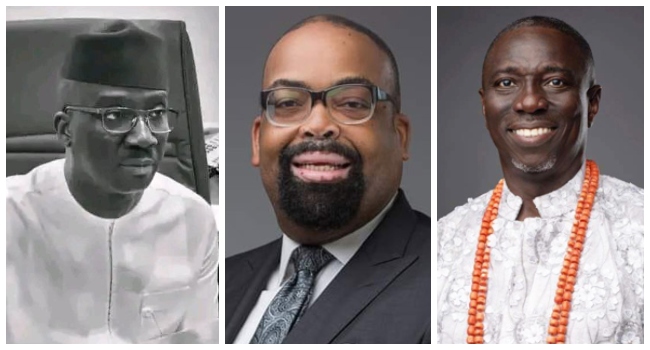Edo Election: Tribunal Fixes Date for Final Ruling
According to reports, the Edo State Governorship Election Petition Tribunal has scheduled this Wednesday, April 2, 2025, for its judgment.
The All Progressives Congress’s (APC) Okpebholo was proclaimed the victor of the election last year by the Independent National Electoral Commission (INEC) on Monday.
The Peoples Democratic Party’s (PDP) Asue Ighodalo and the Labour Party’s (LP) Olumide Akpata were beaten by Okpebholo.
Remember how the PDP and its candidate, Asue Ighodalo, petitioned the Edo State Governorship Election Petition Tribunal to overturn the government’s decision to declare Okpebholo the winner of the September 21, 2024, governorship election? The tribunal had reserved judgment in that case.
In their dispute with the Independent National election Commission (INEC), the PDP and Ighodalo claim that there were election irregularities such as excessive voting, non-serialization of ballots, improper collation, and computation problems.
The petitioners called 19 witnesses and subpoenaed a Senior Technical Officer from INEC’s ICT department during the tribunal hearings. The officer used 154 BVAS devices to bolster allegations of over-voting.
As per the case designated EPT/ED/GOV/02/2024, the APC, INEC, and Okpebholo are the first and third respondents, respectively.
There were no witnesses called by INEC to refute the petitioners’ allegations. One witness was summoned by Okpebholo, and the APC called four before ending their defense.
The ruling will be communicated to all parties at a later time, according to the announcement made by the three-member panel headed by Justice Wilfred Kpochi.
The tribunal’s secretary will notify the parties of a date for execution. Justice Kpochi stated, “The tribunal is adjourned until then.”
Prior to this, Adetunji Oyeyipo (SAN), the petitioners’ principal attorney, formally accepted their last written statement. Referring to the case as having no merit, INEC’s attorney, Kanu Agabi (SAN), urged the panel to dismiss it.
After signing the result sheets, Agabi contended that all of the polling unit agents who testified “could not distinguish between what they heard and what they observed.” In addition, he stated that the petitioners’ coverage of voting places was insufficient to justify a complete election void.
The petitioners did not present any other outcomes that would have allowed them to be proclaimed the winners. “Their argument is based on analyses conducted by hired consultants,” Agabi said, characterizing their allegations of non-compliance as feeble and devoid of reliable proof.
Onyechi Ikpeazu (SAN) spoke on behalf of the governor, stating that the APC candidate won the election with legitimate votes. In order to clarify that Form EC25B only needs the quantity of goods received and returned, not their serial numbers, he contested the petitioners’ argument regarding the non-serialization of sensitive materials.
Despite the petitioners’ claims of excessive voting, he said, none of the BVAS machines that were presented to the tribunal were actually opened for confirmation. “They did not provide the required documentation to support their assertions,” Ikpeazu contended, referring to the petition as a “academic exercise.”
Emmanuel Ukala, the attorney for the APC, also adopted its final address, saying that the petitioners had not produced enough witnesses to back up their allegations. There were no presiding officers asked to testify, he said, and just five polling unit agents were called out of the state’s 4,000+ voting units.
Read Also: Uromi Incident: Traveler Stabs Vigilante While Searching Vehicle – Gen. Esekhaigbe
He emphasized that claims of non-compliance must be verified ward by ward, local government by local government, and polling unit by polling unit, as required by the Supreme Court. “Neither did they call enough witnesses, nor did the petitioners demonstrate how the BVAS machines operated,” Ukala continued.
Ken Morzi (SAN), the petitioners’ attorney, responded by elaborating that their grievances were restricted to 765 polling places rather than the entire state. He maintained that the case should not be evaluated only on the basis of the percentage of voting places that were contested, but rather in its entirety.
“We accept that elections were held at the polling stations, but we argue that 25 votes were converted into 525 votes at the polling places,” Morzi stated.
He also disputed claims of document dumping, claiming that all of the documents presented were approved by INEC and submitted without protest. According to Morzi, the petitioners presented the tribunal with all of the material regarding the various outcomes.

